Coronavirus Makes Infrastructure Sexy Again
SPECIAL: The Swiss Insider 11.03.2020 #insidersdoitsmarter

While national governments and international bodies scramble to respond to the ongoing coronavirus outbreak, it is worthwhile considering the factor(s) that will differentiate the winners from the losers in current crisis.
And we may start by (cautiously) projecting Switzerland to be among the former group.
Most analysts are understandably measuring the impact of the virus by the deep red charts coming out of Wall Street, London and Tokyo. And it is fair to say that those numbers - while indicative of the way in which the internet and digital media can contribute to the spread of global panic and the strong interdependence of a global economy - do not tell the whole story.
The story of the coronavirus is, in fact, a story about infrastructure.
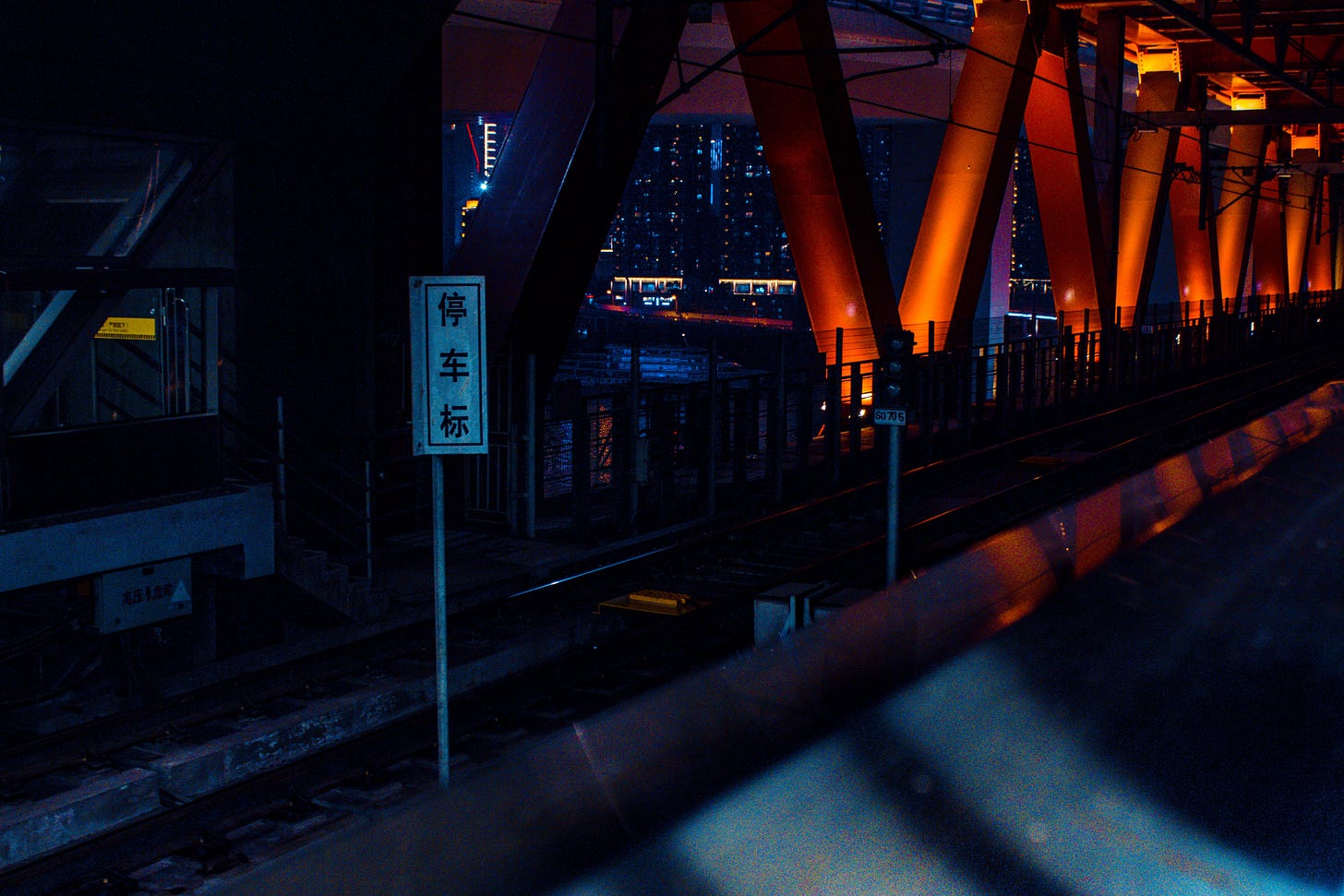
The China machine
In the late 90's and early 2000's when Apple was ramping up its global manufacturing machine, China became the object of its desire.
When the iPhone came along and turned into a cash cow for Steve Jobs and company, it was a result of two things:
a clearly more innovative design and product
a ruthlessly efficient supply-chain that helped turn out model after model on a strict schedule.
After Jobs stepped down and Tim Cook took over, it became even more apparent how well the carefully-crafted process worked. It was this highly effective machine that allowed Apple to keep turning a huge profit (thanks to its leverage on suppliers) despite falling iPhone sales.
Around the same time, China saw a boom in investment into physical and technological infrastructure. (And it hasn’t stopped since…with 13,4% of GDP spent on capital expenditure as recently as 2015.)
Though they can’t take exlusive credit, super-charged companies from the US like Apple helped provide the impetus for this and other expansion around the country.
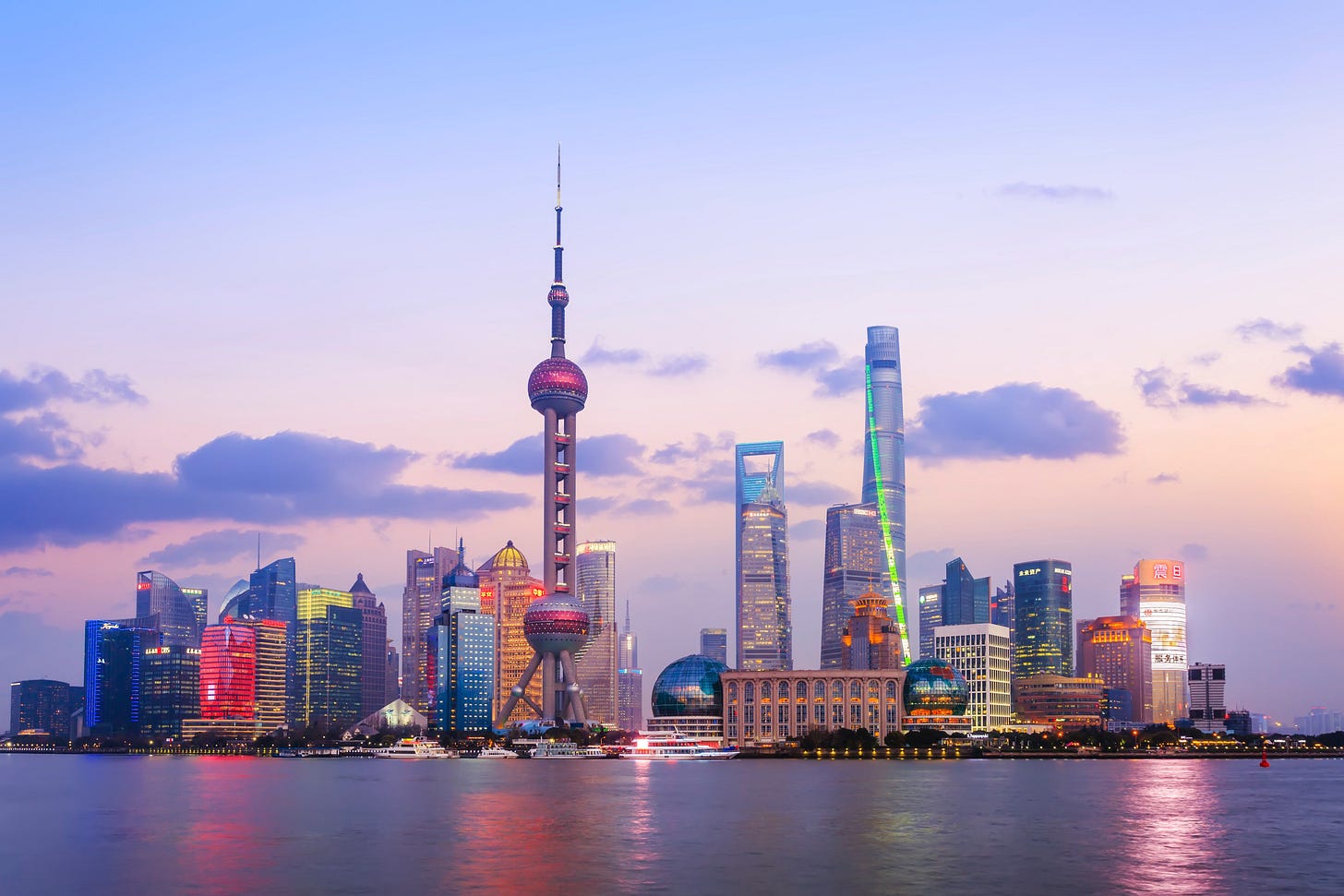
With a booming economy and unending demand from overseas, the poor and rural landscape of China was transformed. Glittering skyscrapers, humming factories and bullet trains fast enough to make German engineers burn with jealousy all sprang up like mushrooms after a rain. This infrastructure has made the country what it is today.
Transport being one of the most important pieces of infrastructure in a country, it goes without saying that China's fabulous rail system and highways have lead to a significant increase in mobility among the Chinese population. The newly born, Chinese middle-class especially has relished the freedom to not only travel within the country, but also beyond its borders.
Many of them find their way to the picturesque cities and ski resorts of Switzerland, spending an average of 380 CHF per day while they’re here.
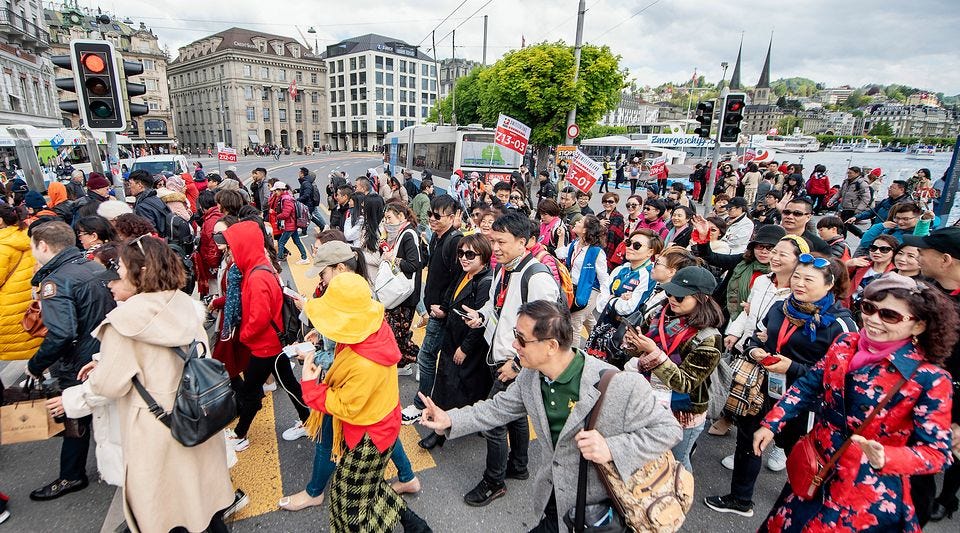
Want to share?
Let a friend or colleague read this article and share their thoughts…you might be surprised!
Detour ahead
The dangers of this increased mobility, powered by world-class infrastructure came into clear focus with the outbreak of coronavirus.
Suddenly, the advantages of efficient travel and a large, motivated work force commuting daily to huge foreign factories turned into liabilities.
The same infrastructure that made it possible assemble and move large amounts of people from point A to point B, became the superhighway for a spreading plague - both within China and internationally wherever Chinese tourists travel.
As many have pointed out, Apple (and others) bet big on China — and now start to suffer the consequences.
Here we come to a second point about Chinese infrastructure - information and society.
In the case of pandemic, the effective collection and spread of information becomes a key factor in containing the problem. While there was an initial lack of action on the part of Chinese authorities, the strong measures since then highlight another side of Chinese infrastructure: a highly obedient society.
Make no mistake, this obedience is not entirely voluntary. China is a dictatorship.
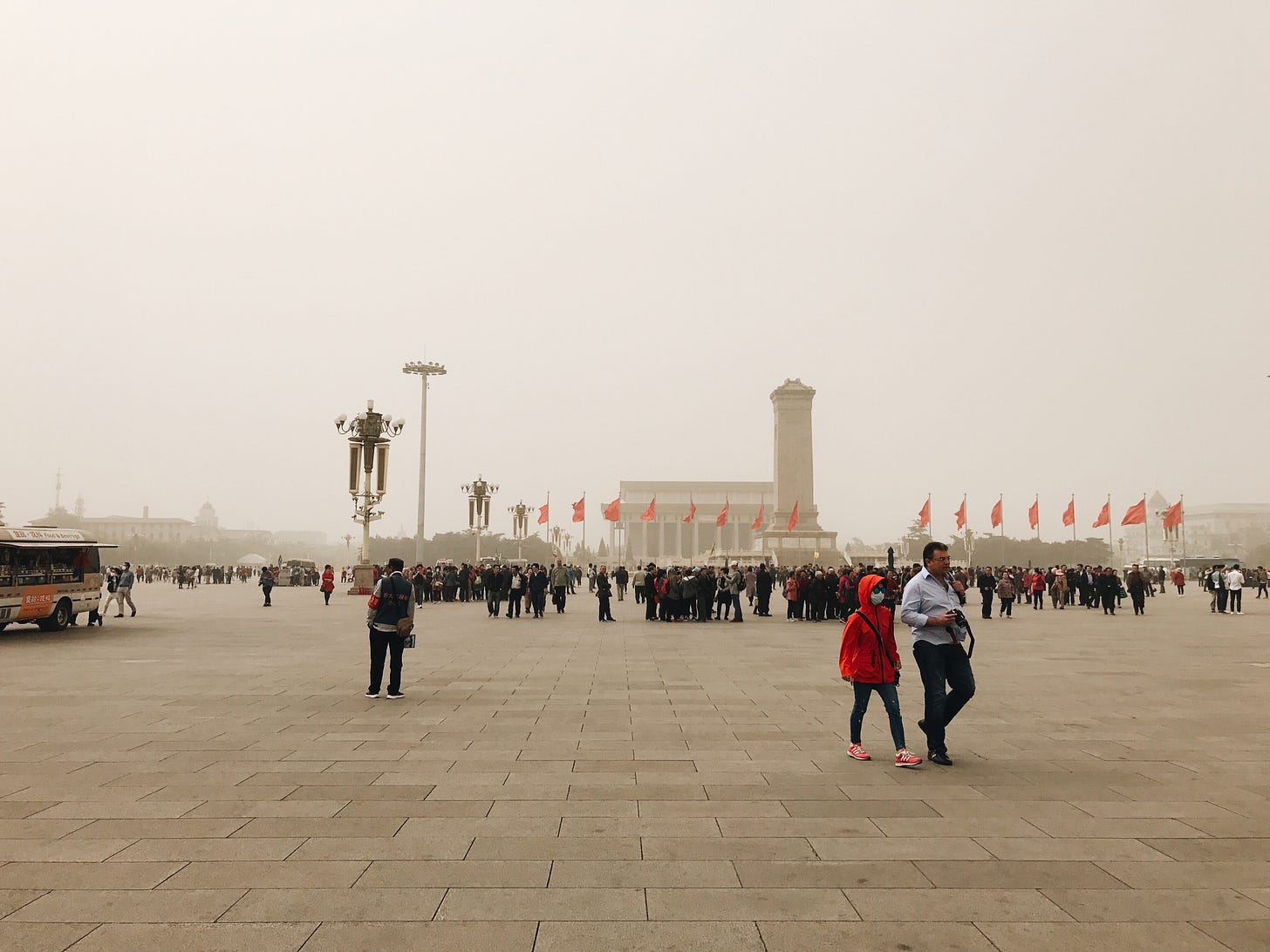
But we're talking about infrastructure here and in such a case, possessing a societal machine that can be isolated and frozen in cases of emergency holds great advantage.
Theoretically, of course, every country with a relatively strong government is able to do the same. In practice, things can be quite different.
In societies with a high-level of civil distrust, a rapid exchange of information, as well as acceptance of public health and safety instructions, can be often hindered. In the case of China, despite being a dictatorship, the societal infrastructure seemed to hold up well.
In many ways, this type of infrastructure - even more so than electrical supply, public transport or general access to essential services - plays a vital role in the business success of a country.
As Apple and others invested into their Chinese operations, the physical infrastructure, combined with a society willing to fit into a system, made for a very successful marriage indeed.
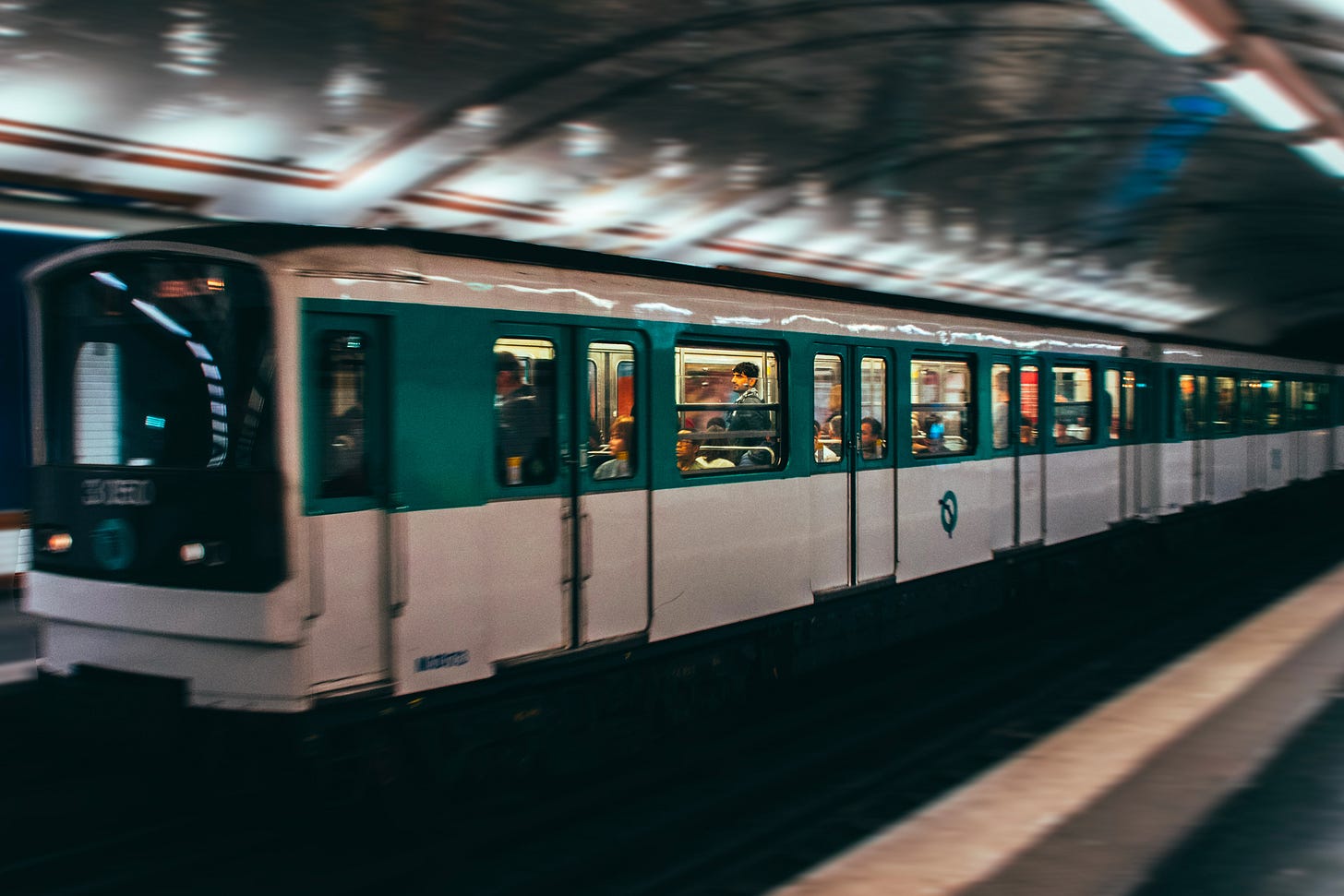
The European variation
Europe is a far different story.
On the one hand, a framework that is meant to align national interests and fosters an ever-closer relationship - the European Union. But lest we kid ourselves - remember, the physical infrastructure, administrative building blocks and monetary policy, even language all make it as yet impossible to speak of a uniform and completely united continent.
To take one example: European-wide rail systems, though still organized and funded on a national level, sync with one another to form a continental-wide schedule.
Because one train, from Budapest to Paris for instance, may need to pass through a handful of countries to reach its final destination, disruption in one country will likely through things off all across the board.
But the framers and builders of the EU realized one thing - infrastructure is important.
Hence the large sums of money dolled every year to raise the standard of transport, education and digital infrastructure around among the (now) 27 nations.
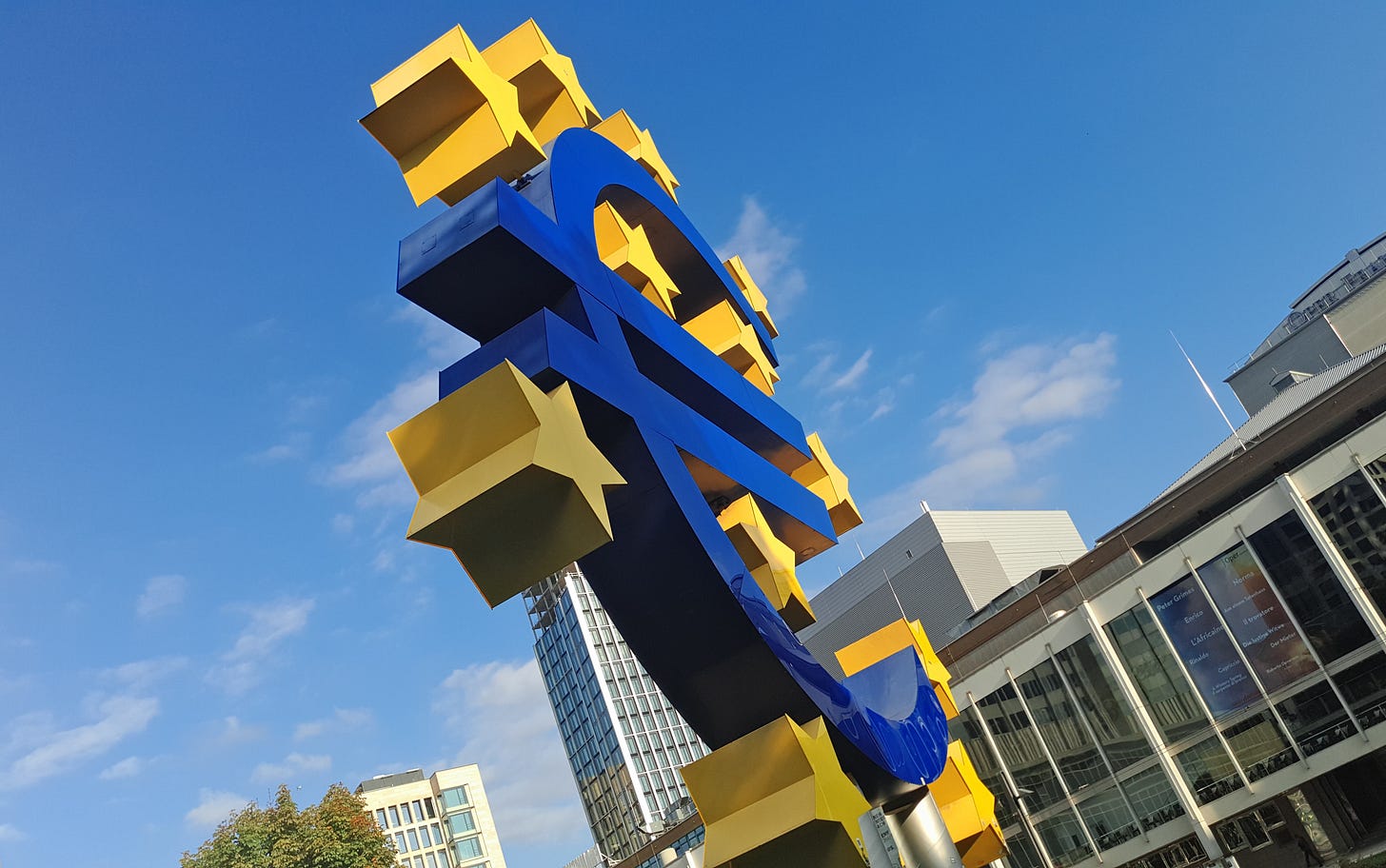
What such solidarity funds cannot do - at least not very well - is improve the societal infrastructure among the various European nations. Mistrust and suspicions in Eastern Europe still weighs heavily on the people of Poland, Czechia as well as in the south, in Greece, for example.
Where does that leave European business in a time of crisis such as now?
Central banks may try to oil the machine with cheaper money, but that won't contribute to a sudden upgrade in infrastructure. Hospitals don't get built overnight.
The open doors of free movement may have helped staff the factories of Germany, Holland and Scandinavia, but the structural employment flexibility that was necessary to make a larger workforce viable has ended up creating a general uncertainty among European workers that only contributes to low-level paranoia and a lack of faith in society.
When a crisis such as coronavirus breaks out, those cracks become more pronounced and a fragile social structure gets exposed.
Uncertainty pushes people to hoard food; immigrant workers are afraid to report their illness for fear of losing a job; healthcare professionals succumb to racial bias when treating victims.
In short, it isn't good.
The Sexiness of Switzerland and Singapore

Which brings us to Switzerland - at long last.
Against the backdrop of Europe as a whole - and even the United States - the Alpine country stands out as a role model of efficient infrastructure.
Its trains run on time (mostly), its postal service works like a bank (which it is, sort of...) and its telecommunication, digital services and bureaucracy all tick along with the precision of the proverbial Rolex.
But that's not all.
As the Swiss Federal government has rolled out its anti-coronavirus information campaign, it is abundantly apparent that the societal pathways, both to and from citizens, are in top shape.
Hygiene recommendations dutifully appear in every lift and office toilet. Popular tourist attractions willingly close off foreign tours and install hand sanitizer stations for local guests.
The bond of societal trust may face the occasional strain, but on the whole, people trust each other and they trust their government.
Ironically, it may be fair to say that China and Switzerland have that much in common - thanks to a strong societal reaction (one born of submission, the other of pragmatism) they are likely to be best able to swiftly implement the measures needed for virus containment.
Another example is Singapore. Again, thanks to strong measures passed down on a population willing to accept them, a healthcare system that hasn’t gone to the dogs over the last years, the city-state has handled the coronavirus better than almost anyone else.
Taken together, these are countries that are making infrastructure sexy again, in spite of the crisis - and their economies will reap the rewards.



